Assistant Professor
Molecular and Cell Biology Laboratory
Richard Heyman and Anne Daigle Endowed Developmental Chair

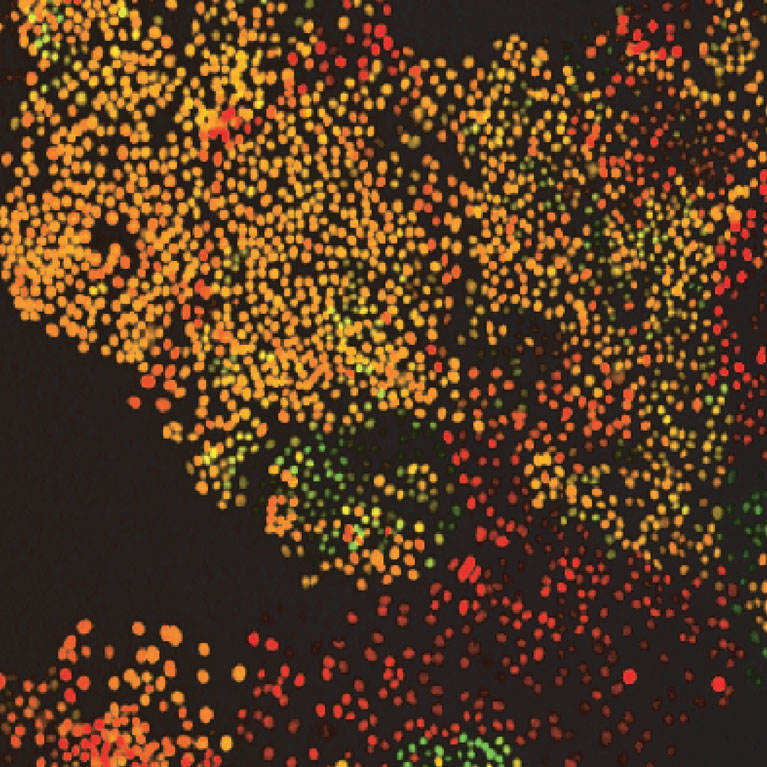
Cancer cells can recycle their own nutrients to grow unchecked. Ongoing clinical trials are trying to target these processes, but so far, the trials have been somewhat disappointing. Scientists still believe that targeting these recycling pathways may increase cancer patient life span, but it remains unclear how to best accomplish this. In particular, cancer cells can adapt after treatment with different therapeutics, causing patients to relapse, yet the adaptations that might occur after blocking recycling pathways remain unknown. Patients need more effective cancer-killing drugs, but first scientists must (1) gain a broader understanding of these recycling mechanisms that cancer cells use to survive, and (2) leverage this knowledge to find the best ways to target these pathways with drugs.
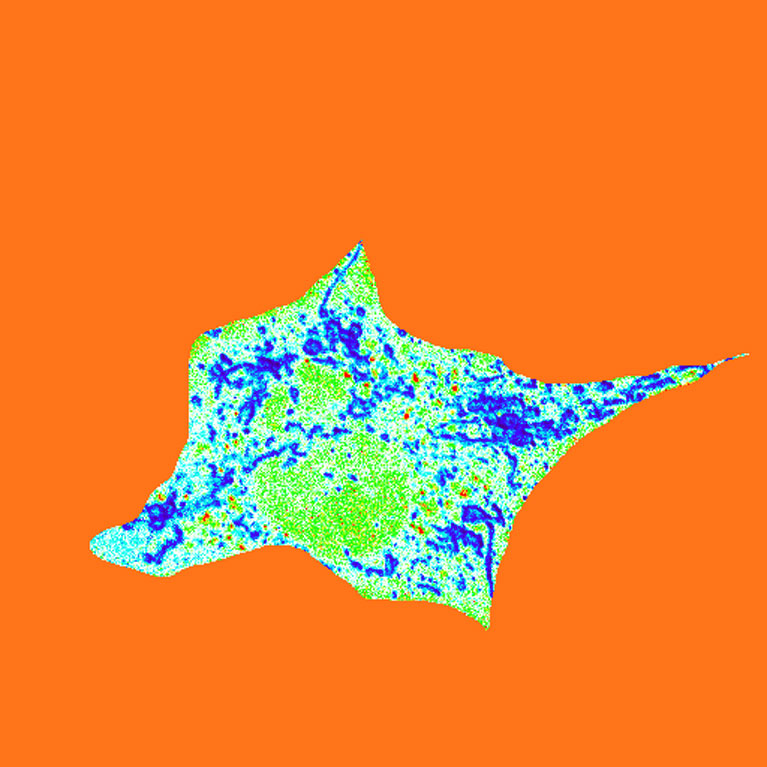
Towers is using a combination of DNA-editing techniques, light-based genetic manipulation (optogenetics), three-dimensional miniature organs (“organoids”), and detailed imaging to uncover how cancer cells recycle both their own nutrients and the power-generating structures called mitochondria in order to survive. Her goal is to work with local clinicians to develop new targeted cancer therapies that can block the cancer cell recycling pathways that allow these cells to survive. Towers’ research could lead to decreased cancer recurrence and improved cancer patient outcomes.
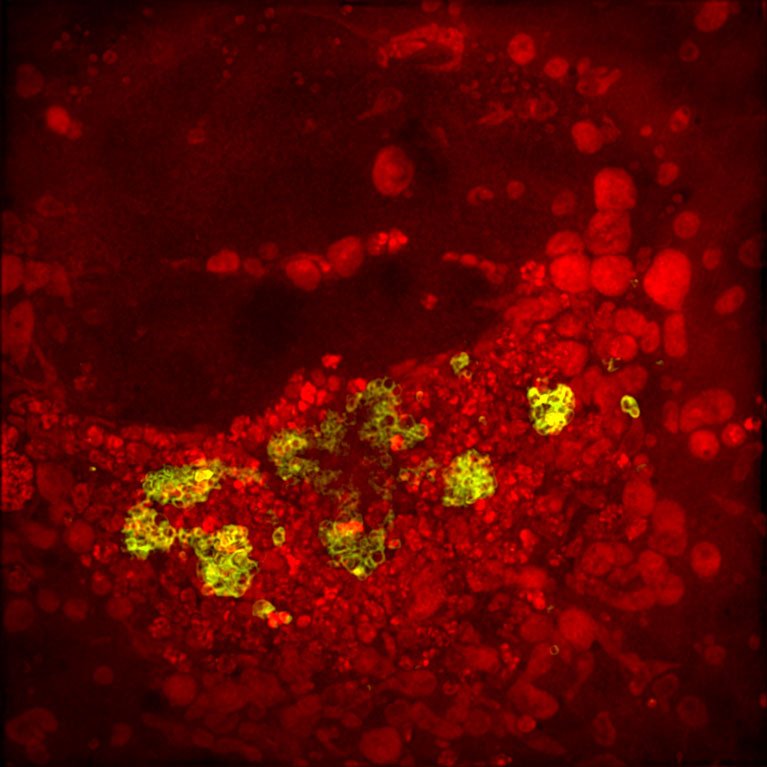
Towers paired the DNA-editing technology CRISPR-Cas9 with live-cell imaging to monitor cancer cells’ ability to survive in real time.
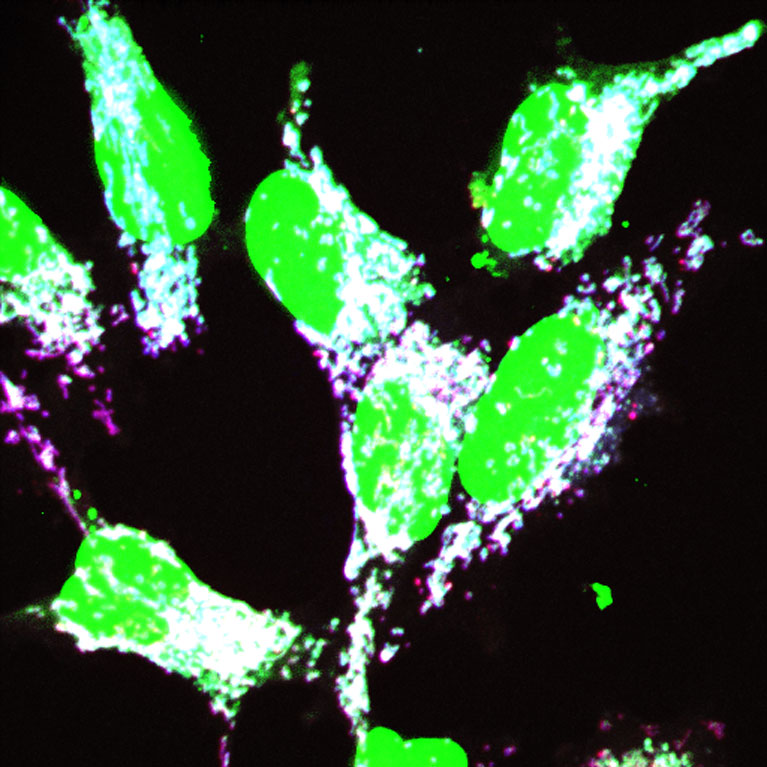
Towers discovered that cancer cells dependent on recycling pathways for survival can adapt when these pathways are blocked and co-opt other pathways to grow.
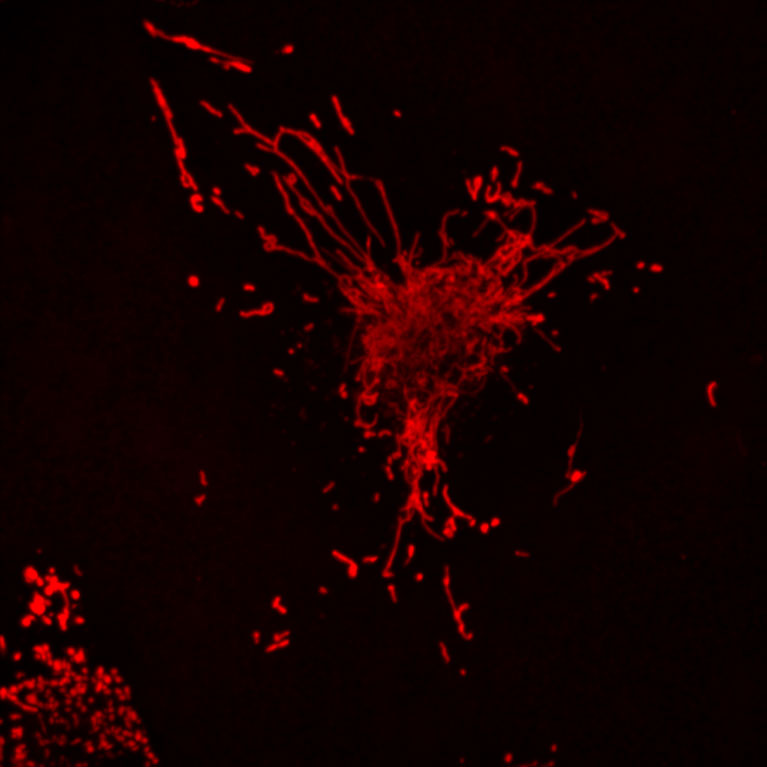
Towers developed a novel technique to measure the recycling of the powerhouses called mitochondria, in cancer cells.
BS, University of Miami
PhD, University of Colorado
Postdoctoral Fellow, University of Colorado